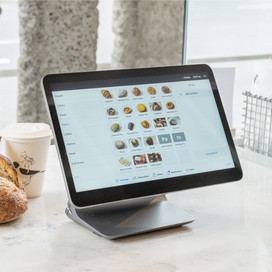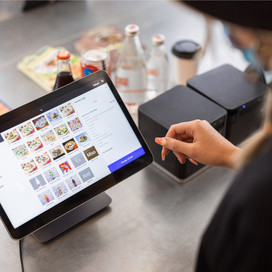Table of contents
Opening a business in a regional area has its advantages. Often rent is cheaper than in metropolitan locations, meaning there’s more room to take a risk creatively. There’s also — generally — less competition, which means you have a greater opportunity to capture the market. But, there are particularities to be aware of when operating a business regionally. So, let’s take a look at how to start a business in a regional area.
1. Get to know the area
Regional areas have their own unique characteristics and economy that are important to understand before you open your business. Talk to locals and get to know the culture of the place. If it’s a beachside town, for instance, chances are early mornings are highlighted (surfing! coffee!) and nighttimes are quiet and slow. Identifying the specific needs and preferences of local customers will help you establish your most relevant offering.
Check out other local businesses to get to know your competition and community. Maybe there are already enough coffee shops, and you’d consider trying to open the first wine bar in town. Kylie Myatt started Savant Apothecary in 2016 in Newcastle to challenge the status quo of skincare products already in the market.
Kylie says, “Starting a business in a regional location has its advantages in that there is less of a constraint on creativity, and there is still room for giving something a go”.

Get clear about the reality of bringing an idea to life and research what market conditions are in the area. Talk to local real estate agents about commercial rental properties and local business trends. Look up average wages and prices of products in the area to get an idea of how much your customers will be willing to pay for your offering.
2. Follow local legal requirements
Business regulations vary considerably by region. Research state and council requirements for operating within your regional area, usually per industry. Examples of area-specific licenses required to open your business may be found through:
Business Queensland: lists licensing information that spans construction, food and beverage, beauty and so on.
Service NSW: directs you to information including vehicle licenses, leases for small businesses, working with children.
Business Victoria: explains the difference between registrations and licences and points you to how to obtain them.
Don’t forget to check your local council regulations and requirements too. The Australian Government has developed a tool called ABLIS which triangulates your business postcode with your industry and other key information to list all state and regional requirements relevant to you.
While you’re on the topic, research the resources, infrastructure, and support services that may be available to you in your region. Through state and council channels you may find investment or grant opportunities, for instance, or incentives and reimbursements to encourage a flourishing business ecosystem in your area.
3. Participate in local networks
In small towns, everyone knows each other, separated by a couple of degrees at most. It’s important to be respectful of the established local fabric of the place, including local leaders, organisations, and communities. It’s also an opportunity to leverage word of mouth about your new offering.
Find ways to engage with what’s happening in your local area, from attending neighborhood meetings to networking events. If you’re in solar power, for instance, you could attend your local meetup, or follow a council industry working group on renewable energy to establish relationships with suppliers and vendors.
Kylie of Savant Apothecary says, “Newcastle has a strong small business scene that is well supported and as businesses, we all know each other. This builds a feeling of being ‘in it together’, you celebrate other businesses growing and taking big steps but equally learn from businesses who stay the same and demonstrate persistence and durability in an ever-changing world.”
Weekend markets that include products from produce to doughnuts to candles are another great way to meet other business owners as well as personally get to know your local audience and potential customers. “There is a strong market scene in Newcastle that is well supported by locals and businesses. Many Newcastle businesses have started at markets just like I did. There is a lot of creativity and excitement in Newcastle,” says Kylie.
4. Set up smooth operations
Create integrated operating processes from the beginning to stay organised as you get going. For services like hairdressing and personal training, Square Appointments provides a seamless booking system for both your customers and your team. Team Management helps you stay on top of rostering as you build your staff base. Amplifying the power of the repeat customer, Square Loyalty enables you to reward new customers and encourage them to keep shopping with you, as well as tell their friends.
Opening a business in a regional location offers business owners unique opportunities that are hard to come by in metropolitan areas. To be successful may require extra research and consideration but the pay-off is rewarding as you establish meaningful working relationships and contribute to the development of a regional area.
![]()












